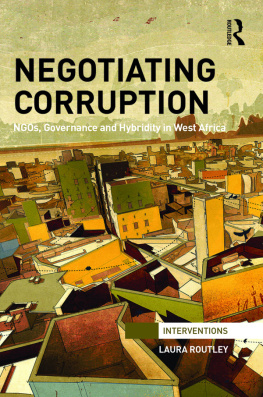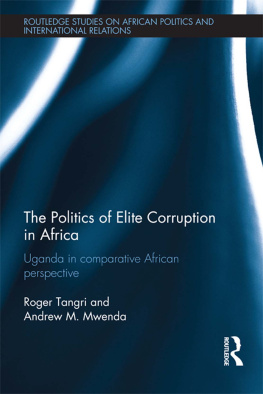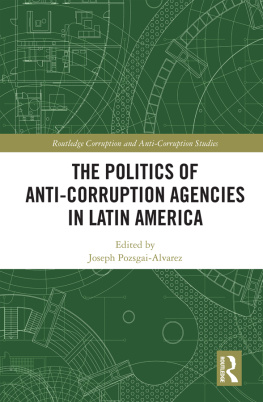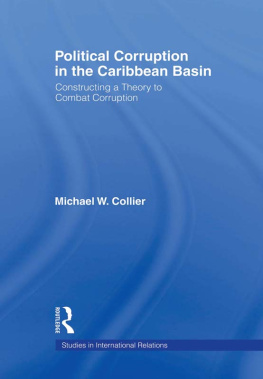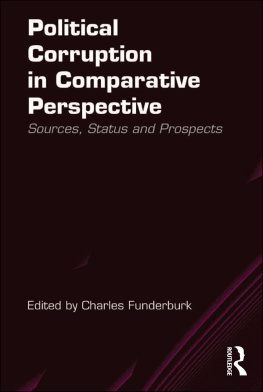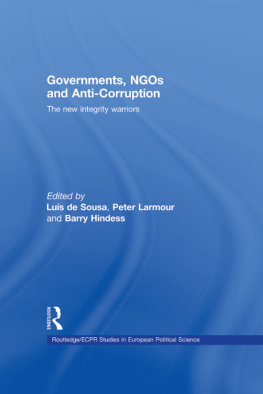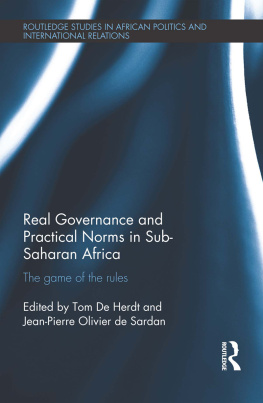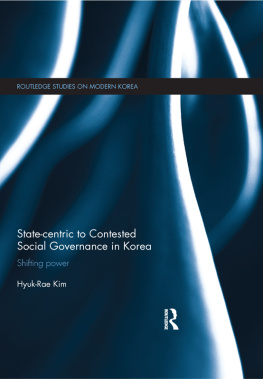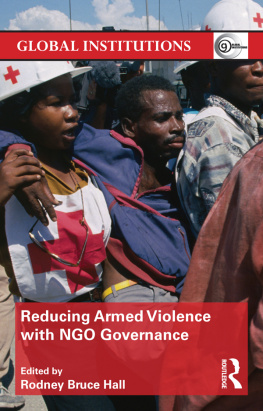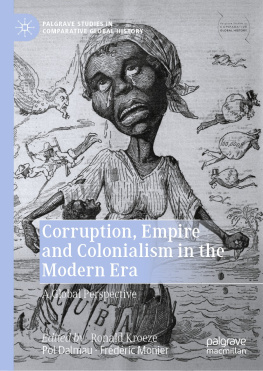Negotiating Corruption
Challenging and ambitious, this book provides both an empirical and a theoretical corrective to dominant accounts of corruption in Africa. Bringing the messy reality of national NGOs to life, Routley shows how their engagement in grey practices to do good cannot be reduced to corruption but is better understood as a form of hybridity and a skillful negotiation of their complex position between the local and the global.
Rita Abrahamsen, University of Ottawa, Canada
Negotiating Corruption demands that we think again about corruption in Africa. It problematises the framing of African corruption as a phenomenon that emerges from a clash between two sets of norms. Moreover, it highlights the colonial legacies of this frame, which situates African corruption within continually recurring debates about the political inclusion or banishment of others.
NGOs are characterised as intermediaries between the local and the international, and between the state and the population. In both of these roles they are understood to reform governance by bringing about changes in culture and instituting bureaucratic norms. They have, therefore, been seen as part of the apparatus of a global liberal governmentality. This book complicates this portrayal and highlights the ambiguous role of liberal governmentality through an exploration of the grey practices of the NGOs that were studied. These practices are grey because they do not fit the pattern of virtuous NGOs holding the state to account described in development policy, yet at the same time they ensure that the state produces the outcomes that a fully-functioning state ought to. This enacting of oppositional and antagonistic elements is further unpacked in conversation with Homi Bhabhas concepts of negotiation and hybridity.
Negotiating Corruption draws attention to both the limitations of current explanations of corruption in Africa and the problematic way in which they are framed. The books detailed engagement with understandings of corruption within policy and academic debates will make it a useful resource for undergraduate teaching. It will also be of keen interest to researchers, academics, and postgraduate students who engage with the issues of corruption, NGOs, civil society, African politics, governmentality, and hybridity.
Laura Routley is a Lecturer in Politics at Newcastle University, UK.
Interventions
Edited by:
Jenny Edkins Aberystwyth University and Nick Vaughan-Williams University of Warwick
The Series provides a forum for innovative and interdisciplinary work that engages with alternative critical, post-structural, feminist, postcolonial, psychoanalytic and cultural approaches to international relations and global politics. In our first 5 years we have published 60 volumes.
We aim to advance understanding of the key areas in which scholars working within broad critical post-structural traditions have chosen to make their interventions, and to present innovative analyses of important topics. Titles in the series engage with critical thinkers in philosophy, sociology, politics and other disciplines and provide situated historical, empirical and textual studies in international politics.
We are very happy to discuss your ideas at any stage of the project: just contact us for advice or proposal guidelines. Proposals should be submitted directly to the Series Editors:
Jenny Edkins () and
Nick Vaughan-Williams ().
As Michel Foucault has famously stated, knowledge is not made for understanding; it is made for cutting. In this spirit The Edkins Vaughan-Williams Interventions series solicits cutting edge, critical works that challenge mainstream understandings in international relations. It is the best place to contribute post disciplinary works that think rather than merely recognize and affirm the world recycled in IRs traditional geopolitical imaginary.
Michael J. Shapiro, University of Hawaii at Manoa, USA
Critical Theorists and International Relations
Edited by Jenny Edkins and Nick Vaughan-Williams
Ethics as Foreign Policy
Britain, the EU and the other
Dan Bulley
Universality, Ethics and International Relations
A grammatical reading
Vronique Pin-Fat
The Time of the City
Politics, philosophy, and genre
Michael J. Shapiro
Governing Sustainable Development
Partnership, protest and power at the world summit
Carl Death
Insuring Security
Biopolitics, security and risk
Luis Lobo-Guerrero
Foucault and International Relations
New critical engagements
Edited by Nicholas J. Kiersey and Doug Stokes
International Relations and Non-Western Thought
Imperialism, colonialism and investigations of global modernity
Edited by Robbie Shilliam
Autobiographical International Relations
I, IR
Edited by Naeem Inayatullah
War and Rape
Law, memory and justice
Nicola Henry
Madness in International Relations
Psychology, security and the global governance of mental health
Alison Howell
Spatiality, Sovereignty and Carl Schmitt
Geographies of the nomos
Edited by Stephen Legg
Politics of Urbanism
Seeing like a city
Warren Magnusson
Beyond Biopolitics
Theory, violence and horror in world politics
Franois Debrix and Alexander D. Barder
The Politics of Speed
Capitalism, the state and war in an accelerating world
Simon Glezos
Politics and the Art of Commemoration
Memorials to struggle in Latin America and Spain
Katherine Hite
Indian Foreign Policy
The politics of postcolonial identity
Priya Chacko
Politics of the Event
Time, movement, becoming
Tom Lundborg
Theorising Post-Conflict Reconciliation
Agonism, restitution and repair
Edited by Alexander Keller Hirsch
Europes Encounter with Islam
The secular and the postsecular
Luca Mavelli
Re-Thinking International Relations Theory via Deconstruction
Badredine Arfi
The New Violent Cartography
Geo-analysis after the aesthetic turn
Edited by Sam Okoth Opondo and Michael J. Shapiro
Insuring War
Sovereignty, security and risk
Luis Lobo-Guerrero
International Relations, Meaning and Mimesis
Necati Polat
The Postcolonial Subject
Claiming politics/governing others in late modernity
Vivienne Jabri
Foucault and the Politics of Hearing
Lauri Siisiinen
Volunteer Tourism in the Global South
Giving back in neoliberal times
Wanda Vrasti
Cosmopolitan Government in Europe
Citizens and entrepreneurs in postnational politics
Owen Parker
Studies in the Trans-Disciplinary Method
After the aesthetic turn
Michael J. Shapiro
Alternative Accountabilities in Global Politics
The scars of violence
Brent J. Steele
Celebrity Humanitarianism
The ideology of global charity
Ilan Kapoor
Deconstructing International Politics
Michael Dillon
The Politics of Exile
Elizabeth Dauphinee
Democratic Futures
Revisioning democracy promotion
Milja Kurki
Postcolonial Theory
A critical introduction

